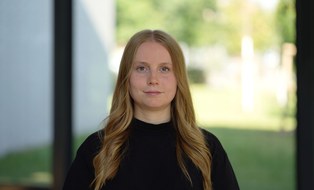Acrylglas 2.0
| Project Title | Acrylglas 2.0 |
| Project Subtitle | Acrylic glass with proven product properties for dimensioning and use as well as testing and monitoring concept in the construction industry |
| Project Leader | Prof. Dr.-Ing. Michael Engelmann (TU Dresden) |
| Researcher | Dipl.-Ing. Alina Gutjahr (TU Dresden) |
| Partners | Heinz Fritz GmbH glasfaktor Ingenieure gmbH CMC Biacryl SA |
| Funding | BMWK – Zentrales Innovationsprogramm Mittelstand (ZIM) |
| Time Span | 2024-2026 |
Project Description
Plastics have established themselves in many areas of the construction industry. The desire for transparency or curved shapes is fulfilled with acrylic glass. This plastic is used in skylight domes, façades, infinity pools and large aquarium panes. Nevertheless, there are hardly any binding statements on the long-term behaviour of the material and its dimensioning.
Polymethyl methacrylate (PMMA, acrylic glass) is offered under various brand names. It is generally regarded as a weather-resistant material. Scratches on the surface can be repaired by polishing. As a hard, stiff plastic, the material has high tensile, compressive and flexural strength and is linearly elastic in the range of small strains. In addition, there is a pronounced load and temperature dependency in the material behaviour. PMMA has a wide range of applications in the construction industry and beyond, in particular because larger formats and thicknesses can be achieved at a lower weight than with glass. However, there are major differences across the industry in the production and joining of the base material, which have an impact on the durability of the structures.
For this reason, the aim of the project is to develop acrylic glass with proven product properties and strengths for joints, especially for applications exposed to water. In addition, recommendations for the design of structural connections will be developed to ensure safe dimensioning and use of the material. A testing and monitoring concept in the utilisation phase is intended to guarantee quality. The project results will be summarised in a guideline that will be made available to manufacturers, building owners, planners and contractors to obtain approval in individual cases.
Contact Person TU Dresden
 © Franziska Rehde
© Franziska Rehde
Research Associate
NameDipl.-Ing. Alina Gutjahr
Send encrypted email via the SecureMail portal (for TUD external users only).
Institute of Building Construction
Institute of Building Construction
Visiting address:
NÜR, Raum 408 Nürnberger Straße 31A
01187 Dresden
 © Franziska Rehde
© Franziska Rehde
Professor of Sustainable Building Construction
NameProf. Dr.-Ing. Michael Engelmann
Head of the Institute of Building Construction
Send encrypted email via the SecureMail portal (for TUD external users only).
Institute of Building Construction
Institute of Building Construction
Visiting address:
NÜR, 06-018 Nürnberger Straße 31A
01187 Dresden
